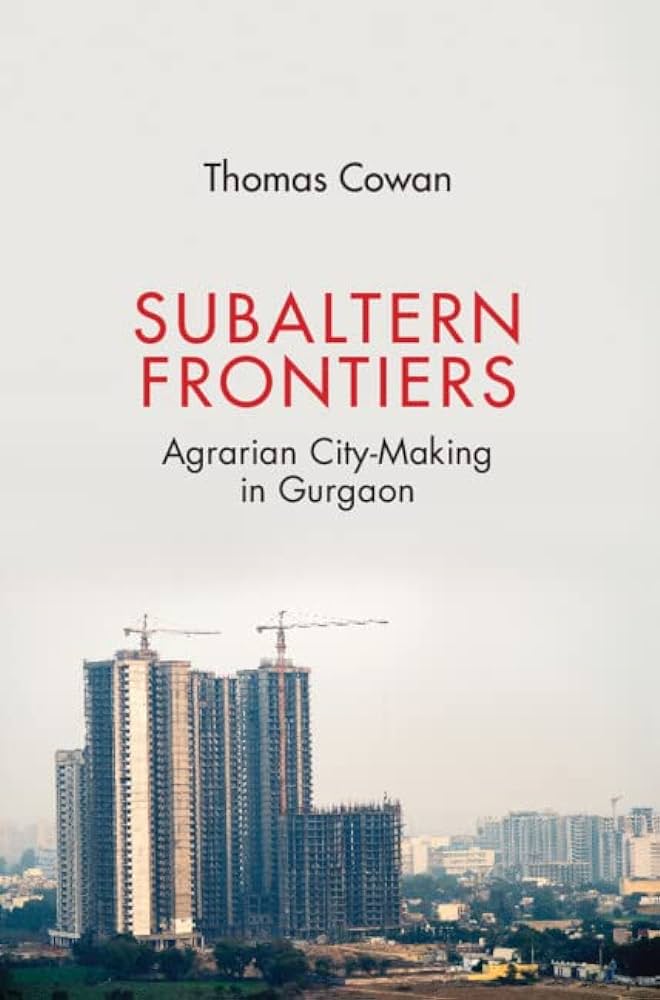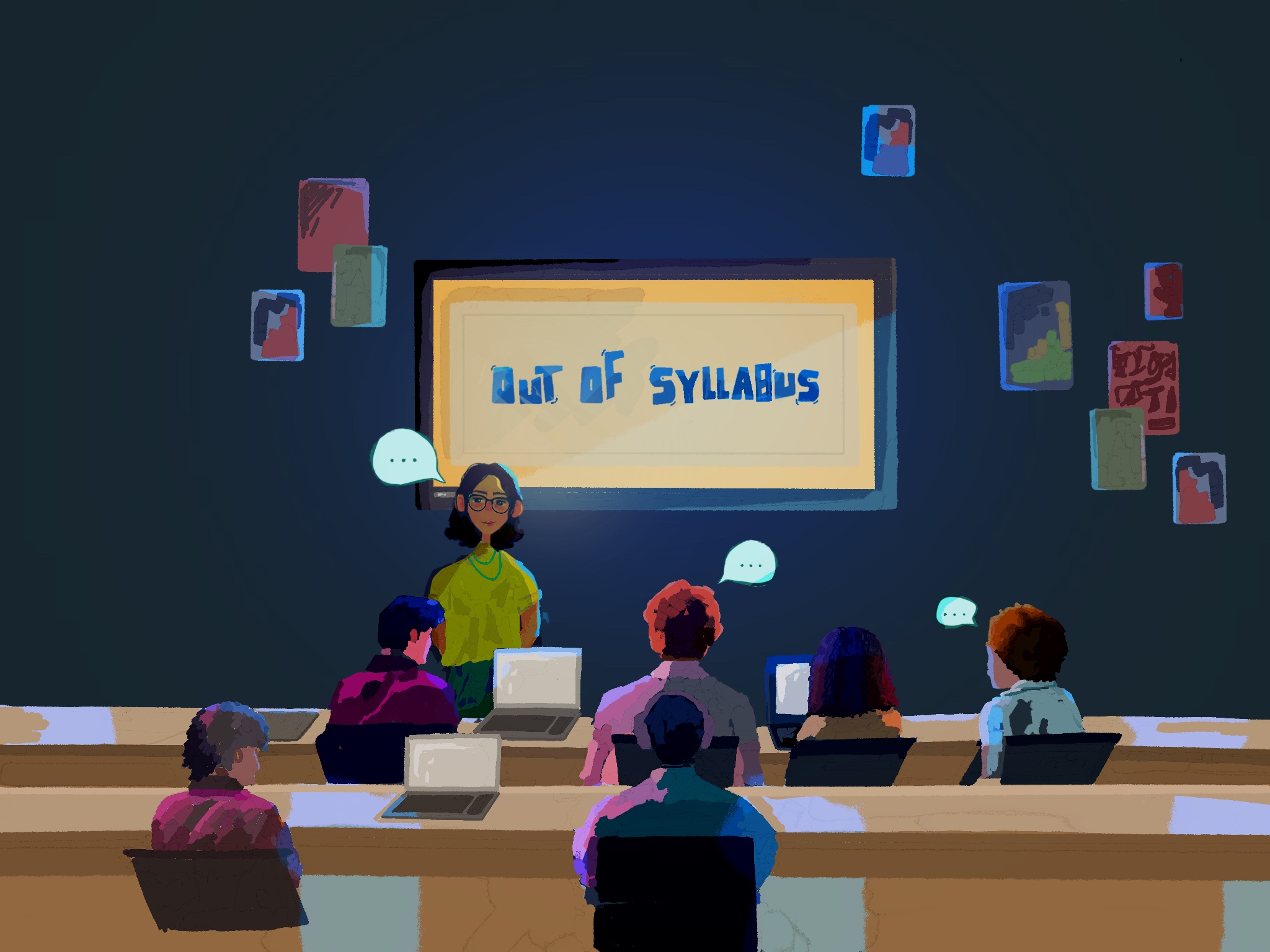W
hile penned from disparate disciplinary locations, research engagements, and political orientations, the responses to this lively forum on Resource Radicals nonetheless cohere around shared themes, around which both agreement and disagreement crystallize. The result is a set of provocations that transcend the book under discussion, suggesting new directions for academic inquiry and political strategy alike. Who are the people, and what are their powers? At what scale(s) does this popular sovereignty operate? What does international solidarity look like in a context of competing claims to popular sovereignty? And how might a collective subject accrue the power to dismantle extractivism and build something different in its place? These questions resonate across the interventions of Bosworth, Davis, Klinger, Mann, and Porter; I cannot hope to answer them conclusively here — indeed, we should be suspect of conclusive resolutions to debates that are inherently inflected by contextual specificities and ideological commitments. Instead, I will draw lateral connections between the contributions and impart my own perspective on the challenges they jointly raise.
Resource Radicals is an account of a left divided. The “left in resistance” (Indigenous and environmental movements) espoused a radical anti-extractivism against the “left in power” (the Correa government) steadfastly committed to an extractive route to economic development. But, as Bosworth usefully underscores, these programmatic disagreements, and their respective locations across a mutually constituted division between ‘society’ and ‘state’, in turn map onto a tense divide at the heart of democratic politics. Anti-extractive movements exemplified, and indeed explicitly claimed, the “constituent power” ungirding, exceeding, and limiting the “constituted power” of the Correa government. The two powers are intimately intertwined: decades of popular struggles were the condition of possibility of a progressive administration in the first place. Once inaugurated, the Correa government convened a constitutional assembly to entirely rewrite the constitution — both a key demand of social movements and an extra-ordinary ‘constituent moment’ par excellence. The connections between constituted and constituent power reverberated within the assembly itself, which occasioned fierce debates between more movement aligned and government aligned forces over the very question of how ‘the people’ — or, in plurinationalist rendering, peoples — and their powers ought to be defined. The dialectical relationship between constituent and constituted power, as Bosworth makes clear, does not imply symmetry or synergy: to put it bluntly, only one of these two lefts and forms of democratic power has a monopoly on state violence. The challenge is how the left in resistance might cultivate “its own enduring institutional apparatus” — i.e. go beyond what Klinger calls “a politics of resistance or refusal — and thereby enter into a “generative and iterative relationship with constituted power.” But this challenge is immediately a contradiction: would such institutionalization evacuate constituent power of its irruptive, as opposed to enduring, qualities? I return to what Bosworth rightly calls “the deepest problem for the revolutionary left around the world” below.
The question of popular power cannot be analyzed apart from the uneven and unequal development of capitalism that forms the target of anti-extractive movements’ radical energies. The constitutive unevenness of capitalism is perhaps most striking at its extractive frontiers: those peripheries of the global economy where both nature and labor are super-exploited, and in the process cheapened and sacrificed, as resources are extracted (or, as Porter reminds us, harvested) and fed into the treadmill of accumulation. This is the “planetary mine” (Arboleda 2020) — or plantation — that is required for the ‘global factory’ to function. Although the logics of colonialism and imperialism continue to structure the world order, this unevenness does not simply divide the Global South — where the majority of these extractive inputs originate — from the Global North. Instead, the uneven territoriality of extraction is fractal, generating inequalities within and across countries (for that reason, it is worth ‘deterritorializing’ the concept of the Global South, to more capaciously account for subaltern positions and political projects within the Global North; see Mahler 2017). In Ecuador, the extractive model of development fragments the very popular sectors whose provisional unity would be a sine qua non of post-extractive transition. On the one hand, directly affected rural communities located near and/or dispossessed by extractive projects bear the brunt of social environmental devastation; on the other hand, in the context of a progressive government, the economically precarious majority — concentrated primarily in urban and peri-urban zones — benefitted from resource-funded social services and public infrastructure. Bosworth, Davis, and Mann draw our attention this how extractive unevenness manifests in scalar politics: local communities mobilize their grievances and geographic proximity to resist extraction; meanwhile, the leftist government deploys a homogenous concept of “the nation” (or, in its democratic gloss, el pueblo) to justify expanding oil and mining — a concept the draws its political force from the tangible improvements in the lives of most poor and working class people. But, despite appearances, the ‘local’ and the ‘national’ are not two opposed scales of social life: As Mann shows, both are internally related in a complex ‘inter-scalar’ dynamic that exceeds the boundaries of the nation-state; or, a “hyperlocal and hyperglobal phenomena,” as Davis puts it. The Indigenous demand for consultation, or more strongly, consent, involves local communities invoking an international legal norm as a “claim upon the [national] state” (Mann). The demand for consultation is thus not only multiscalar: It is also an act that combines resistance to and legitimation of state institutions. Furthermore, as Porter elucidates, the concept of “affected community” has its own blind spots, tending to center the Indigenous communities harmed by resource extraction and thus often effacing other rural populations — e.g. Afro-descendent communities located along coastal lowlands — who often face a distinct set of harms linked to the expanding agricultural frontier.
Davis draws out the implications of the constitutive unevenness of the extractive model of development for the politics of international solidarity: “How does our praxis of solidarity shift when we recognize we are all impacted (differentially) by resource extraction?” Part of what renders the politics of extraction particularly fraught are the competing invocations of sovereignty, usually understood as a claim to supreme authority over a specific territory. In Resource Radicals, conflicts over oil and mining occasioned conflicts between national sovereignty and Indigenous sovereignty (and, one might add, multinational corporations that threaten both). In this context, what should international solidarity look like? Davis answers this question by appealing to shared, albeit differential, stakes in dismantling extractivism: “If we are all impacted by mining - some of us through benefits- then we are beholden to each other, and solidarity can begin from a place of responsibility to one another rather than a model where some of us imagine ourselves as ‘helping’ others from a place of innocence.” In other words, the flipside of the uneven territoriality of extraction is the potential for a spatially dispersed coalition across the extractive supply chains of global capitalism. Sharing this insight, Resource Radicals demonstrates that a similar logic would need to pertain within Ecuador, where working class people are divided between rural and urban, between those who pay the socio-environmental cost and those who receive (partial and provisional) benefits of resource-funded development. This suggests an additional complexity to the politics of international solidarity. As Bosworth and Davis note in passing, in cases like Ecuador activists and academics in the Global North have been divided between defending left governments — whether from US intervention, domestic reaction, or mobile capital — and defending the rights of the land and water defenders that found themselves in conflicts with those very governments.
These distinct options for the praxis of solidarity in turn map onto distinct visions of the route to radical transformation, in Ecuador and globally. All four responses touch directly on this question. Mann contrasts statist versus anti-statist orientations to emancipation; Bosworth zooms in on the challenges of weaving together a collective subject with revolutionary potential; Davis interrogates the relationship between sweeping vision and strategic power-building; and, finally, Klinger and Porter explore the possibilities of the non-extractive economy that might result from what Klinger calls the “constant struggle and organizing” necessary to not only defend land and water from the extractive frontier, but to transform the model of accumulation altogether. This last point is worth expanding on. Klinger, drawing on her own fieldwork experiences in the Brazilian Amazon, underscores the cunning of extractivism, evident in the fact that even seeming alternatives to it (e.g. “‘alternative’ forms of development, like ecotourism”) reproduce its logic of commodification. Porter likewise wonders whether a “non-extractive organic agriculture or ecotourism” is possible. And both interestingly suggest, perhaps in tension with Mann, that some constellation of state institutions and autonomous social forces is needed to embark on a more wholesale change in the model of accumulation: Klinger calls for “proper planning and power-sharing”; Porter for a government that earns the trust of marginalized communities.
This final point brings us up to the present conjuncture. Surveying the political landscape in Latin America, the resurgence of the left in power (given recent victories in Peru and Bolivia, and with strong potential in upcoming elections in Brazil, Colombia, and Chile) opens up the possibility for constructing “generative and iterative” (Bosworth) relations with the left in resistance that proceeded it and exceeds it. But it is equally clear that, as necessary as such ‘generative’ relations within national contexts are, they would not be sufficient for a post-extractive transition that necessarily requires political action at other scales, whether regional coordination, international solidarity movements, or redistribution to the Global South to meet the pressing needs of climate resiliency, energy transition, and Covid safety.
Works Cited
Arboleda, Martín. 2020. Planetary Mine: Territories of Extraction Under Late Capitalism. New York: Verso Books.
Mahler, Anne Garland. 2017. “Global South.” Oxford Bibliographies in Literary and Critical Theory, ed. Eugene O'Brien. Oxford: Oxford University Press.
Thea Riofrancos is an associate professor of political science at Providence College and an Andrew Carnegie Fellow (2020-2022). She is the author of Resource Radicals: From Petro-Nationalism to Post-Extractivism in Ecuador (Duke University Press 2020) and co-author of A Planet to Win: Why We Need a Green New Deal (Verso Books 2019). Her current research focuses on the global lithium frontier.





















